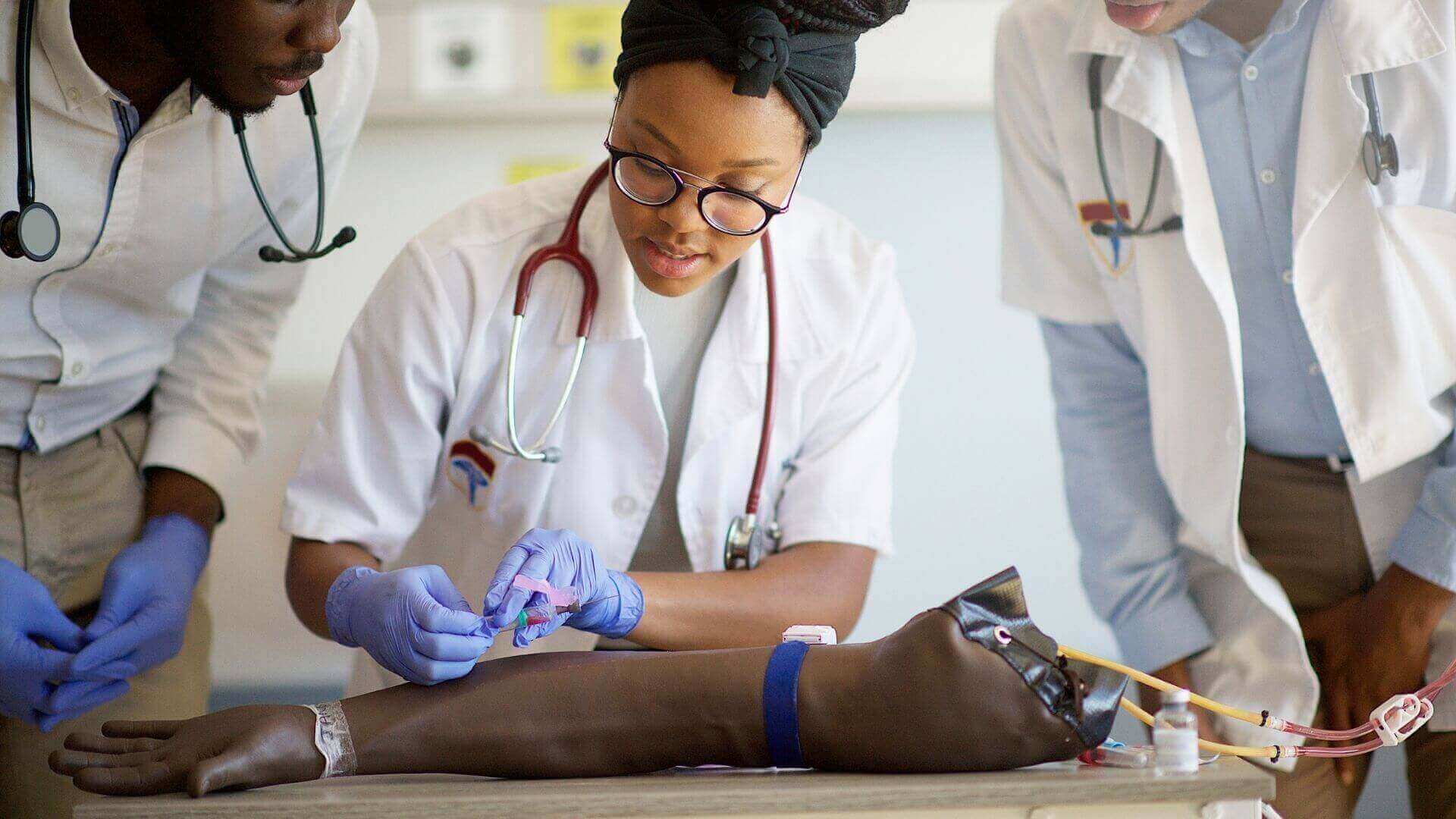Phlebotomy, the art of drawing blood, plays a vital role in the medical field. It is a skill that requires precision, empathy, and a strong foundation in healthcare practices. If you're considering a career in healthcare but don't want to commit to the rigors of medical school, phlebotomy could be your perfect entry point into the industry. This blog post will explore how selecting the right phlebotomy course can be a starting point for a fulfilling and impactful career in healthcare.
The Growing Demand for Phlebotomists
The demand for phlebotomists is on the rise, and the reasons are clear. Healthcare providers are under increasing pressure to provide diagnostic services, leading to more roles for those skilled in phlebotomy. According to recent statistics, the job outlook for phlebotomists is expected to grow much faster than the average occupation, with an estimated 17% increase in jobs over the next decade.
This need for phlebotomists extends across various medical settings, from hospitals and diagnostic laboratories to blood donation centers and outpatient care facilities. The diversity of employers allows for a range of working environments and schedules, offering flexibility to those seeking work-life balance in the healthcare sector.
The starting point for entering this in-demand field is choosing the right phlebotomy course. This decision can impact not only the speed at which you enter the job market but also how well-prepared you are to excel in this critical healthcare role.
Key Factors to Consider When Choosing a Phlebotomy Course
The decision to enroll in a phlebotomycourse is a significant one, and several factors should influence your choice. Understanding the basics of what to look for in a program can make a difference in your educational experience and, ultimately, your career prospects.
Accreditation and Certification Requirements
One of the most critical aspects to consider is whether the course you're interested in is accredited by a reputable organization and fulfills the certification requirements of the industry. Certification can significantly enhance your job prospects and earning potential.
Look for programs that are accredited by certifying bodies such as the National Accrediting Agency for Clinical Laboratory Sciences (NAACLS) or the Commission on Accreditation of Allied Health Education Programs (CAAHEP).
Curriculum
The curriculum is the heart of any educational program. A well-designed phlebotomy course should include a balance of theoretical knowledge and hands-on training. Familiarize yourself with the course structure, ensuring that it offers the necessary educational components:
- Anatomy and physiology
- Medical terminology
- Blood collection procedures
- Infection control
- Laboratory safety
- CPR certification
The right balance of classroom and clinical hours is crucial. A minimum of 40 hours of classroom instruction and 100-120 hours of clinical training is a common standardization among phlebotomy programs.

Cost and Financial Aid Options
The cost of the course is a practical consideration for most students. Affordable options exist, but it's important to balance cost with the quality of education and potential returns on your investment.
Explore financial aid resources, such as scholarships, grants, and loans, to help fund your education. Some institutions may also offer payment plans to make the cost more manageable.
The Benefits of a Comprehensive Phlebotomy Program
Choosing a comprehensive phlebotomy course can offer several advantages, including a more thorough understanding of the profession and better preparation for the workforce.
Real-World Preparation
A program that offers extensive clinical training allows students to gain practical experience in a supervised, real-world setting. This type of hands-on learning is invaluable, as it provides exposure to various blood-drawing techniques and helps to build confidence in a clinical environment.
Career Services
Reputable phlebotomy courses often provide career services, such as job placement assistance and resume building workshops. These resources can help you secure a position more quickly and smoothly transition into the workforce.
Tips for Success During and After Your Phlebotomy Course
To make the most of your phlebotomy course and set yourself up for success in your future career, consider the following tips:
Master the Basics
During your course, focus on mastering the fundamental skills and principles of phlebotomy. Solidify your understanding of anatomy, physiology, and the correct procedures for blood collection.
Build Strong Study Habits
Develop effective study habits early on to retain the information you learn. Practice regularly and seek out additional resources, such as online study guides and flashcards.
Network and Gain Experience
Take advantage of any networking opportunities your course may offer. Additionally, consider internships or volunteer work in a healthcare setting to further enhance your skills and make professional connections.
Prepare for Certification Exams
If your course does not include certification, plan for it upon graduation. Be proactive in learning about the certification exam requirements and begin preparing well in advance.
Update Your Resume and Cover Letter
Tailor your resume and cover letter to highlight the skills and experience you gained during your phlebotomy course. Be specific about any accomplishments, such as awards or exceptional performance, that can set you apart from other candidates.

Conclusion
The decision to pursue a phlebotomy course can be life-changing. By choosing a program that offers quality education, practical experience, and support, you can establish a solid foundation for a rewarding career in healthcare. Take the time to research your options, prepare diligently, and step boldly into the growing field of phlebotomy. After all, a single choice now can lead to incredible opportunities and personal fulfillment in the years to come.
Ready to take the next step? Search for accredited phlebotomy courses today and begin your transformation into a certified phlebotomist. Your future patients are waiting, and your potential is limitless. Take the plunge – it's your time to shine.












